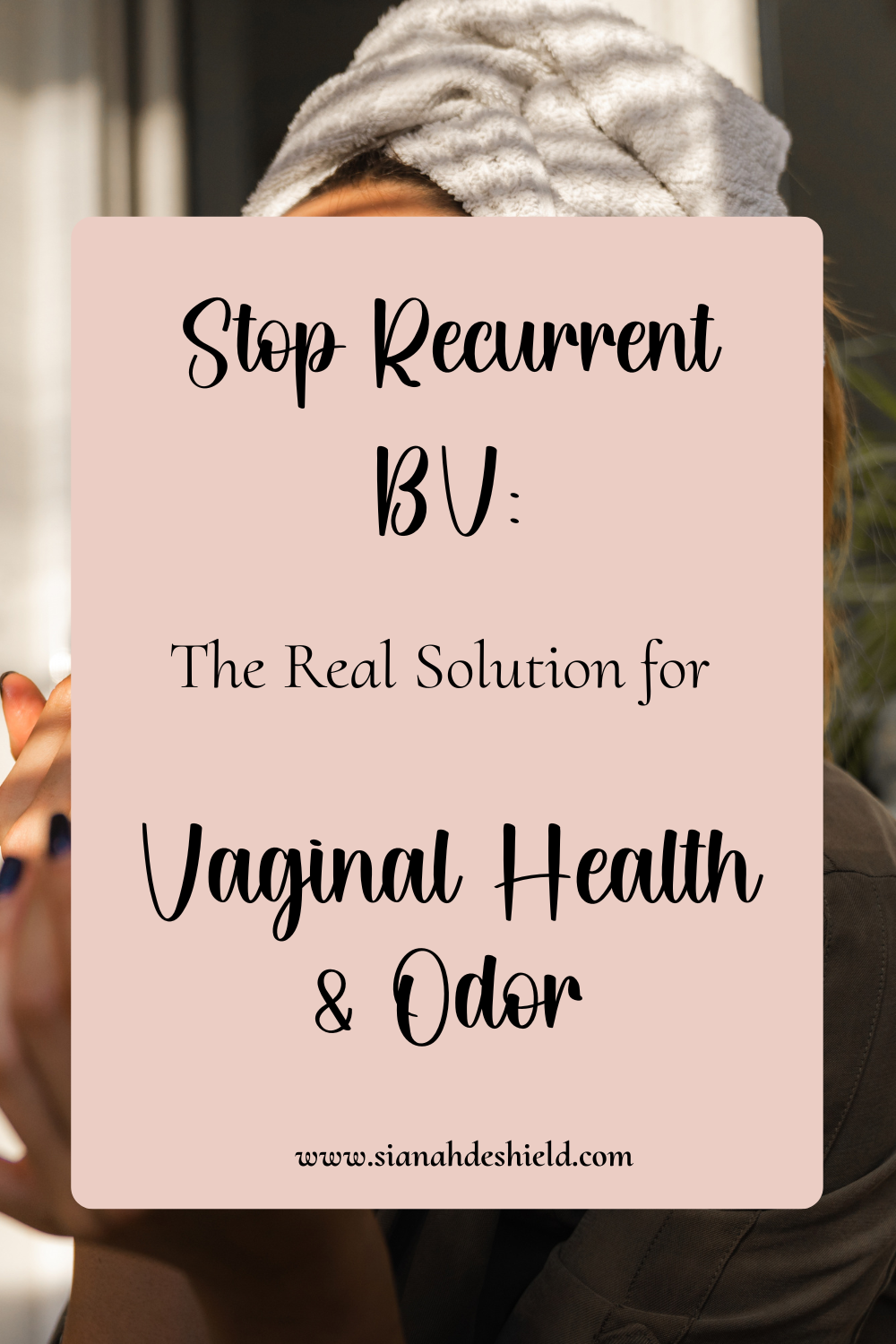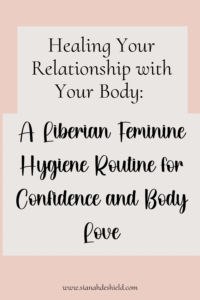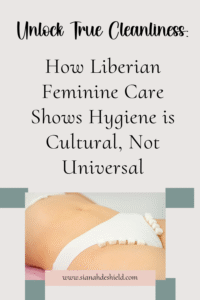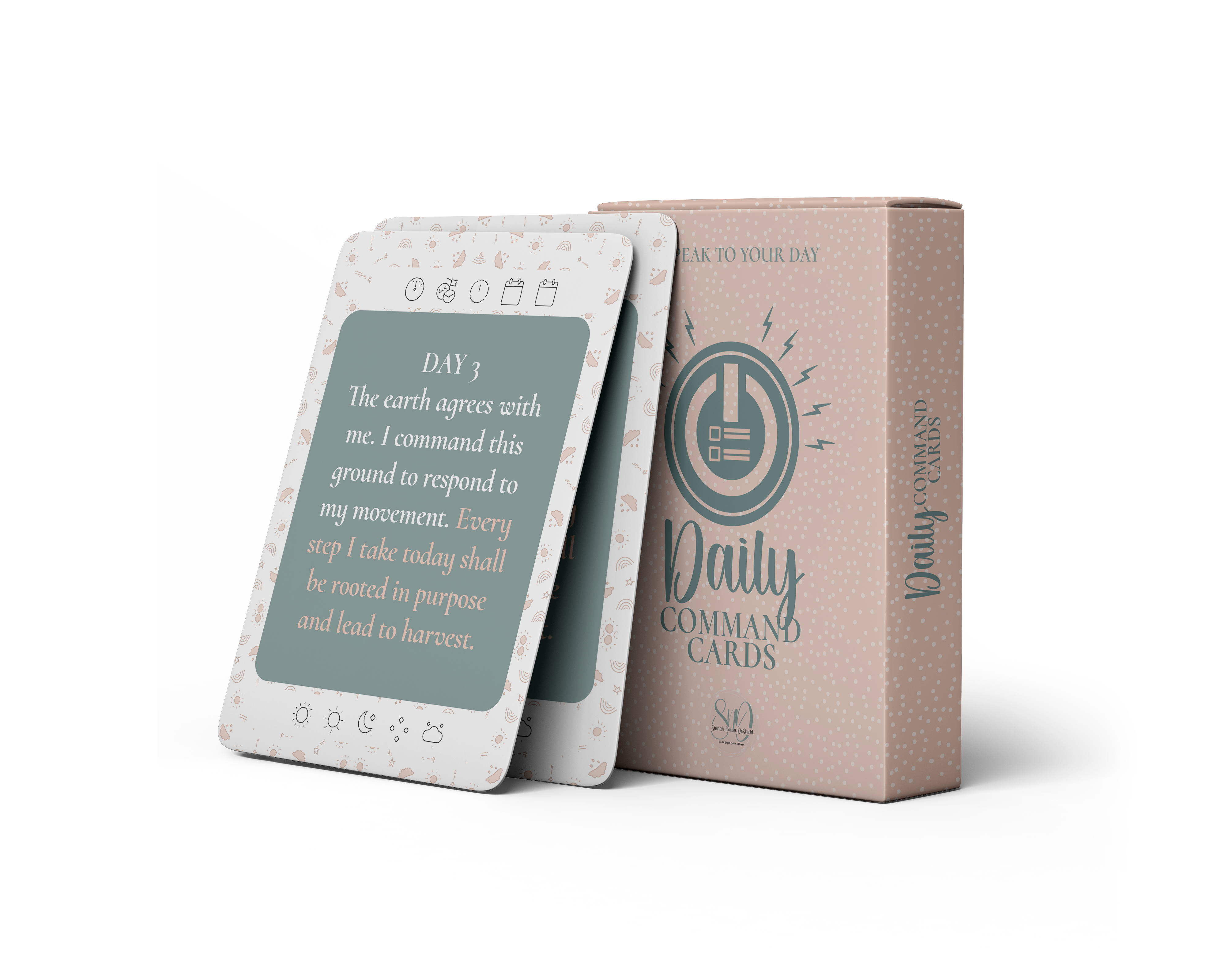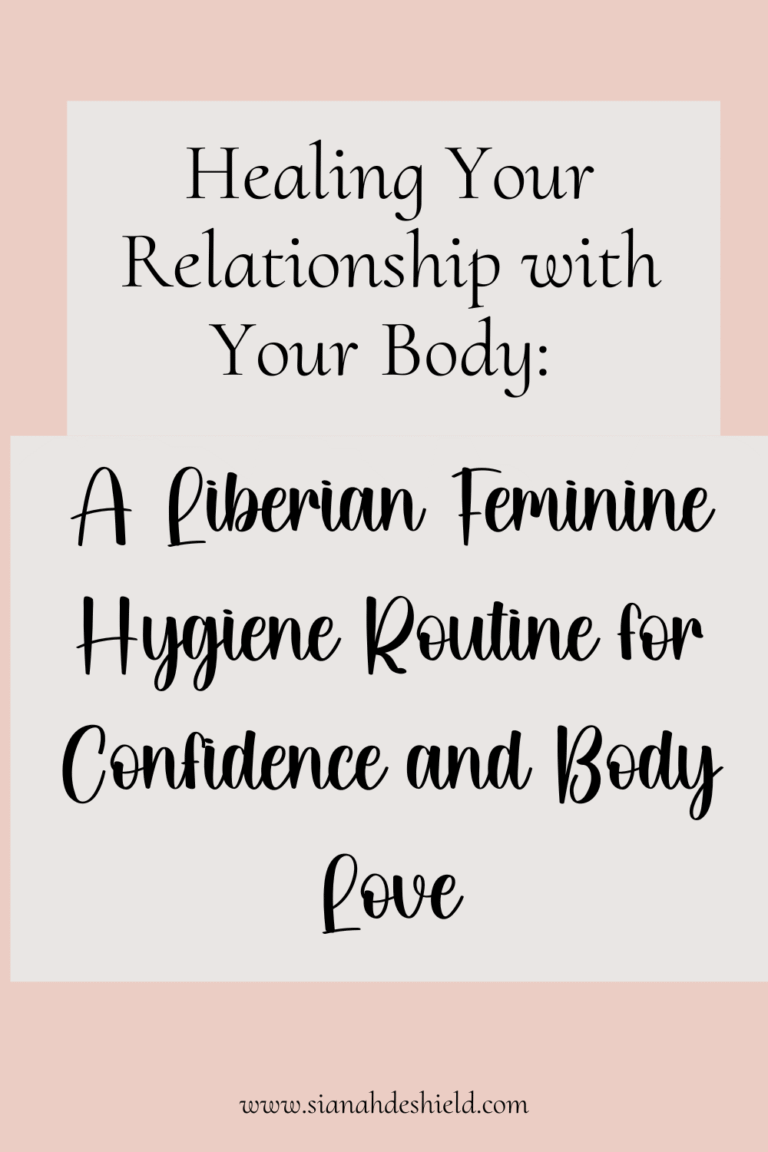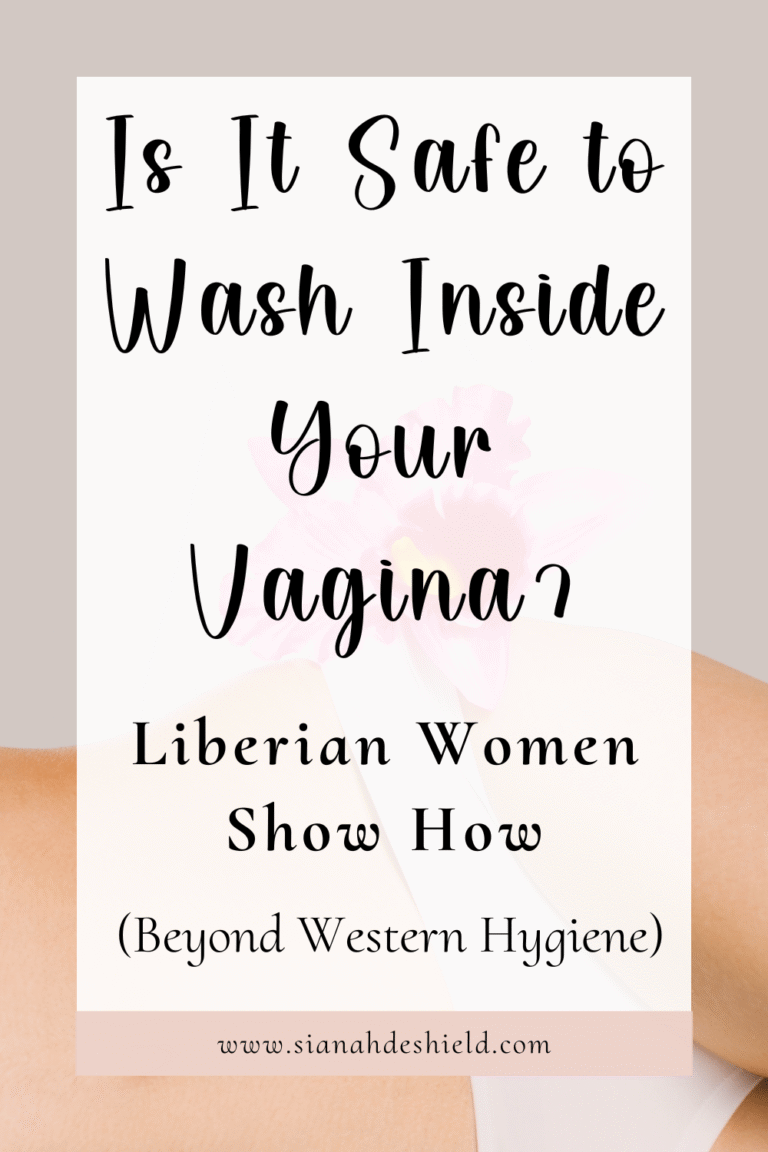Disclaimer!
Hey, friend! Full Transparency Before You Dive In:
Everything you find on this site, from feminine hygiene tips to DIY recipes and lifestyle advice, is based on personal experience, cultural practices, and over 15 years of doing it myself. I’m not a doctor, dermatologist, or licensed herbalist. I’m simply a mama, passionate DIYer, lifestyle author, and novelist, sharing what has worked for me and what’s been passed down through generations.
Please do your research, listen to your body, and always consult a qualified healthcare provider before trying anything new, especially when it involves your health, skincare, or wellness routine.
Also, some links on this site are affiliate links. That means I may earn a small commission if you purchase at no extra cost to you. But I only share products I’ve personally used, believe in, or know will bring value to you.
Now that we’ve got that covered, let’s get into the good stuff.
Stop Recurrent BV: The Real Solution for Vaginal Health & Odor
Ladies, let’s have an honest and empathetic chat about a relentless cycle many of us unfortunately experience: the dreaded Bacterial Vaginosis (BV) cycle. You know the drill, right? One minute, you are feeling amazing, vibrant, and carefree. And the next, you are frantically typing into Google, “How do I treat BV?” Before you can even finish your three-hour deep dive into “Can BV go away on its own?”, you are already heading to the nearest drugstore, hoping for a miracle over-the-counter treatment (that often does not quite work), or bracing yourself for another uncomfortable doctor’s visit. Then comes the common advice from doctors on how to maintain your vaginal health and avoid BV: “Just wash the vulva,” or even more unhelpfully, “Do nothing, the vagina cleans itself.” But how is that advice truly working out for your vaginal health and helping you unlock true cleanliness?
You will likely agree with me that it is high time to gently, but firmly, stop the BV cycle in its tracks and lovingly embrace a fresh, incredibly effective approach to feminine hygiene. This post is not about pushing expensive soaps, questionable trends, or vague, frustrating guidance. Oh no! It is about embracing genuine common sense, celebrating the profound generational wisdom passed down from Liberian feminine care, and discovering proven techniques that genuinely work for your vaginal health, helping you to unlock true cleanliness.
In this heartfelt post, you will discover the powerful, often overlooked truth behind proper vaginal hygiene, learn about the game-changing “Squat and Clean Method” that I discussed in detail in my book, Girl, Wash Your VJJ! You will also understand why some common medical advice might, at times, miss the mark when it comes to women’s holistic vaginal health. Packed with enlightening insights rooted deeply in Liberian feminine care traditions, this post will leave you feeling informed, empowered, and ready to take confident control of your feminine hygiene once and for all.
If you have ever found yourself wondering why you are stuck in a frustrating cycle of recurring infections, if you have quietly questioned popular feminine hygiene norms, or if you simply yearn to feel more confident and utterly comfortable in your beautiful body, then my dear, this is the resource you did not even know you needed! Let’s get real, get informed, but most importantly, let’s get truly, beautifully clean.
My Story: Why I Became Obsessed With Vagina Cleanliness (A Bit of a Tearjerker, But with a Happy Ending!)
Let me tell you about a dear friend of mine in Minnesota. She is a lovely person, one of those vibrant souls who made my stay in the U.S. incredibly interesting and joyful. We were part of a wonderful group, sharing laughs and navigating life, and her presence was always a gift. It was years later, after we had built that easy, comfortable camaraderie, that she and, let’s call him John, a mutual friend, started dating. John had quietly carried a deep admiration for her for years, you know, the kind of silent devotion that makes a romantic novelist like me giddy! Watching them together, it was just undeniable; their connection was like perfectly matched puzzle pieces finally clicking into place. They had that rare, effortless chemistry that truly felt destined for a storybook ending. I had always loved and wanted them together.
Life, of course, progressed as it always does. I made my big move to Nigeria, settled into married life, and had my two handsome boys. Life was wonderfully busy, full, and good. And then, the news came that lit me up even more: just six months into their relationship, my friend and John were discussing marriage plans! The thought of them finally tying the knot excited me to my very core. Oh, how I adore love stories! Theirs felt like one I would write myself, unfolding with all the beauty and promise I chase in my fiction.
But then, one quiet night, the universe decided to throw a surprising wrench into that perfect narrative. I was lying in bed with my husband, the gentle hum of the night around us, when my phone rang. It was her. My heart seized in my chest as I heard her sobbing so hard I could barely understand a word she was saying. “John left and hasn’t called me since,” she choked out, her voice breaking, shattering my peaceful evening.
I sat straight up, confusion warring with a cold dread. “What happened?” I pressed, my heart racing, desperate to make sense of her distress. I did my very best to calm her, get her to breathe, and tell me what was wrong. Through her tears, she managed to explain, her voice barely a whisper, that during a wonderfully intimate moment, everything had seemed fine. Perfect, even. Until it was not. John abruptly pulled away, got up, mumbled something about needing to leave, and then he simply left without another word. He never called her again after that night.
My curiosity, my deep need to understand, became overwhelming. I just had to know what was going on. So, with a bit of trepidation, I picked up the phone and called John, hoping for some clarity. He sounded reluctant at first, hesitant to speak, but after a few gentle, probing questions, he admitted it, with palpable embarrassment: “She smelled, and I couldn’t continue the intimacy with that scent lingering”. He had walked out right when things began to heat up in the bedroom. And I am not talking about just taking clothes off, girl; I am talking about John wanting to bring those 8000 nerves alive and take my friend to heaven and back, but he was utterly taken aback. He was hit by a not-so-pleasant scent that lingered in his nostrils, and he simply could not continue. Ouch! The brutal honesty of it, the way they both explained this heartbreaking story, made me ache for her. My heart broke for both of them because I was genuinely rooting for them to have that storybook ending.
He admitted that he cared for her deeply and felt so incredibly embarrassed having such a conversation with me, but he simply could not bring himself to say it to her. He was hoping I might help her out, woman to woman. He felt completely lost on how to handle such a sensitive situation, confessing, “As a man, I’m not used to meeting women who don’t know how to truly take care of themselves”.
When I gently relayed his painful words back to her, she was utterly devastated. A profound confusion washed over her. “No one’s ever told me these things before,” she said through fresh tears, a heartbreaking realization dawning on her. I asked about her feminine hygiene routine, how she cleaned, and she explained her usual practices. Then, as I made a few observations, a painful epiphany clicked into place for her. “I thought I was doing everything right. No wonder I kept getting BV, even when I wasn’t having sex,” she mumbled, the pieces finally fitting together.
What followed was a series of raw, honest, and deeply empathetic conversations where I broke down everything I knew about gentle vaginal care. These were the very things I would later pour into my book, Girl, Wash Your VJJ! and I am sharing with you now. She listened without taking a shred of offense, her desperation palpable as she yearned to understand how to truly take care of herself. She loved him, and the thought of losing him to something that could change, something she could control, was unbearable. She did not need convincing; the pain of that experience was enough. No one had to tell her to make a change. She was more than ready.
And the happy ending? Yes! They eventually worked things out. John appreciated her willingness to learn, to genuinely listen, and make positive changes, which speaks volumes about his character. And she, in turn, appreciated his honesty, difficult as it was to hear. My friend has changed, truly transformed, and they are now engaged, set to marry this December. Their love story, once almost derailed by an unspoken issue, found its way back, stronger and more honest than ever.
But that entire experience, that raw, pivotal moment, taught me something that sticks with me every single day. It became my absolute obsession with vagina cleanliness, a powerful truth that I simply could not forget, and one that resonates deeply with the principles of Liberian feminine care and how to unlock true cleanliness.
How many amazing women have, perhaps unknowingly, lost out on wonderful relationships because no one ever taught them the basics of proper vaginal care? How many incredible men have walked away, leaving women to sadly assume they were “just after sex” or “not in love,” when the real issue was from a subtle vaginal odor or vaginal discharge? How many women have normalized unpleasant vaginal odors, perhaps because they read about it on Google, or are simply convinced that the vagina is “supposed” to smell a certain way? And how many of us lovingly spend thousands on doctor visits, vaginal creams, and beautifully scented (but ultimately unhelpful) feminine hygiene washes, sadly masking the problem instead of addressing the root cause of Bacterial Vaginosis?
This is not just about feminine hygiene in the narrow sense; it is about the profound confidence you carry yourself with, the self-respect in how you beautifully present yourself to others, and lovingly break free from myths that hold you back. If my friend’s story resonates with you, please stick around. Let’s bravely stop the cycle, together, and unlock true cleanliness.
The TikTok Story: A Gynecologist’s Frustration (A Little Humorous, A Lot Relatable!)
There was a TikToker whose story went viral. This lady shared a candid story about how her gynecologist, bless his heart, felt utterly “abandoned” by her because he honestly did not know what else to do about her recurrent BV. After giving her all the medications and advising on lifestyle recommendations, to no lasting avail, he was understandably tired.
Her story is not unique, not at all! Many doctors face this same frustrating challenge, especially with women who experience recurring vaginal issues. They do everything their training and protocols suggest, but when the results do not last, they are left shrugging their shoulders, feeling a bit lost.
But here is where the fascinating problem lies: the widely accepted medical belief in some circles that “the vagina cleanses itself, so one should only wash the vulva.”
This narrative has been deeply ingrained in many Western women for generations. Most women have been lovingly told to “just leave it alone,” that only the vulva should be washed, never inside the vagina. But what happens when this “do nothing” approach does not work? What happens when this advice leads to years of discomfort, financial and emotional stress, and even, sadly, strained relationships due to persistent vaginal odor or vaginal discharge? This highlights the urgent need for a more comprehensive approach to feminine hygiene, perhaps drawing from Liberian feminine care to unlock true cleanliness.
The woman on TikTok, like so many of us, genuinely believed the same myths, and it sadly cost her. Not just in terms of health, but in precious time, money, and even a little bit of trust in medical professionals. Her gynecologist was not wrong in his frustration; he was diligently doing everything he was trained to do. But perhaps the science shaping this particular training is, in some ways, incomplete, and women are unknowingly paying the price in their vaginal health.
This is exactly why I wrote this book. I want to lovingly challenge this belief head-on and equip women with the invaluable knowledge they have been denied for ages. Truth is, the idea of your vagina perfectly cleaning itself, all on its own, is just as flawed as thinking saliva keeps your tongue spotless without ever brushing it! For real, vibrant vaginal health, you genuinely need specific, effective vaginal care practices. These loving methods prevent problems like recurring BV, tackle vaginal odor, and ultimately make you feel confidently healthy, utterly in charge of your feminine hygiene, and help you to unlock true cleanliness.
Let’s stop accepting incomplete advice and start embracing solutions that work. My book gently debunks the myth, uncovers the heartwarming truth, and offers you the practical tools to confidently reclaim your vaginal health.
Myth-Breaking: Science vs. Common Sense
The widely spread myth that “the vagina cleanses itself” is deeply ingrained, like a stubborn little weed in our minds. But let’s take a deeper, more humorous look at why this idea does not quite hold up when it comes to maintaining proper feminine hygiene. Yes, your vagina has natural, wondrous ways to balance its internal environment, a bit like how saliva works inside your mouth – a mini internal cleaning crew! Yet, for true vaginal health, it still requires attentive, loving care and proper cleaning. Just because your body has self-regulating features does not mean you should be exempt from regular maintenance for optimal vaginal health. Let me put it into a funny perspective:
- Saliva helps keep the mouth moist, but does that mean you should skip brushing your teeth? (Imagine the horror!)
- Sweat helps expel toxins, but would you ever stop showering altogether? (Unless you are going for a very natural, medieval aesthetic!)
The same common sense applies to vaginal health. While the internal vagina does have amazing self-cleaning mechanisms, the external areas, including the vulva, and yes, even gently rinsing the inside, need intentional, loving care. This is where the “self-cleaning” myth, in its oversimplification, truly falls short regarding comprehensive feminine hygiene. But there is more! This myth is also often used to discourage washing inside the vagina, claiming that it can disrupt your pH balance. This belief is not just misguided, it is simply untrue, and frankly, a bit funny! How can plain water, the most natural, pure, and simple element, possibly disrupt your pH and worsen vaginal discharge? That is just not common sense!
It is truly disheartening to see women suffer from recurring Bacterial Vaginosis (BV) as if it were just another part of their monthly routine. And who is their best friend? Their gynecologists and pharmacists, whom they visit so often that they are now on a first-name basis! Isn’t it wild? You could be taking pills, using creams, and depending on doctors for a “quick fix,” all while possibly overlooking one simple, loving solution: proper vaginal hygiene that mirrors the wisdom of Liberian feminine care.
Imagine walking into your house and never cleaning it because “it cleans itself”. Over time, wouldn’t the dust bunnies start forming entire civilizations? Or consider skipping showers altogether because, well, your body’s natural sweat and oil will “cleanse” you. Sounds ridiculous? Exactly! The same delightful logic applies to vaginal care. The idea that “the vagina cleanses itself” has been overly generalized and profoundly misunderstood. While the internal vagina does have self-cleaning mechanisms, the vulva and the inside of your vagina gently need active, loving care, just like every other precious part of your body. This is crucial for you to unlock true cleanliness.
The Solution: A Balanced Approach (Simple, Sweet, and Effective!)
Instead of relying on products that provide short-term fixes for vaginal odor or vaginal discharge, let’s lovingly take a common-sense approach to vaginal care. The secret lies in gently cleaning inside your vagina with plain water, using your finger as part of the elegant “Squat and Clean Method”. This technique keeps the vagina clean without disturbing its natural pH balance. The focus should be on keeping things simple: use plain water, no soap, no fancy products, just water. This does not disturb your natural balance and is the most effective way to keep everything fresh, healthy, and happy for superior feminine hygiene. This is the essence of Liberian feminine care and how you can unlock true cleanliness.
Debunking the Medical Myths (With a Respectful Nudge!)
Popular websites, like MedicalNewsToday, Healthline, BloomOB/GYN, and MorelandOBGYN often advise washing only the vulva and not inside the vagina. This popular advice, while seemingly well-intended, unfortunately became the standard despite its limitations. It often overlooks the valuable cultural and practical wisdom concerning feminine hygiene from various parts of the world. Such recommendations typically originate from Western practices, where “the Squat and Clean Method” is not widely known, and where years of harsh soaps and aggressive douching have regrettably proven detrimental to vaginal health. However, what they sometimes fail to acknowledge is that an approach like “the Squat and Clean Method,” rooted in Liberian feminine care, provides effective vaginal care without upsetting the vagina’s delicate pH.
Scientific evaluations often miss the mark because they, perhaps unintentionally, fail to study diverse practices globally. Cultures like Liberia have centuries of proven feminine hygiene practices that prioritize cleanliness without compromising vaginal health. Ignoring this rich wisdom reflects a biased lens, sometimes framing Western norms as the universal standard. A comprehensive scientific approach, however, would lovingly show that many non-Western traditions offer practical, long-term vaginal health benefits. Consider the pervasive myth that rinsing inside the vagina with plain water can disrupt your pH balance. This idea is not just incorrect; it playfully defies common sense! Your vagina’s pH is remarkably resilient. Using plain water, free from soaps (even “mild” ones) or harsh chemicals, actually helps maintain that delicate balance, rather than throwing it off. It is time to let go of the outdated belief that only the vulva should be washed externally. Instead, embrace the straightforward logic of a simple, natural method for managing vaginal discharge and ensuring thorough feminine hygiene, truly helping you to unlock true cleanliness.
Scientific Backing for Internal Cleaning with Plain Water (A Gentle Reminder)
While many health organizations rightly advise against douching with harsh chemicals, there is no direct scientific consensus that simply rinsing the vagina with plain water is inherently harmful. Generations of women across diverse cultures have lovingly relied on water for internal cleansing, and history simply does not show widespread negative health outcomes from these careful practices. The genuine concern surrounding douching, as many medical experts emphasize, nearly always points to the irritants, fragrances, and harsh chemicals in commercial preparations. It is these substances, not plain water, that can truly upset your natural vaginal flora and precise pH balance.
- The American College of Obstetricians and Gynecologists (ACOG): While generally advising against douching due to potential infection risks, ACOG primarily directs its recommendations at these commercial douches containing chemicals or fragrances, rather than simple plain water. (You can find more details on their website under “Vaginal Health FAQs.”)
- The Center for Disease Control and Prevention (CDC): The CDC warns against douching due to its association with various vaginal health problems, but the focus, again, is largely on commercial products. (The CDC provides further details on douching and sexually transmitted diseases that highlight this distinction.)
Understanding the Microbiome: What truly matters is to lovingly keep your body’s natural balance intact. Unlike irritating soaps or heavily scented items, plain water has a neutral pH, making it significantly less likely to disrupt your precious vaginal microbiome. A careful rinse just helps manage any excess vaginal discharge and gently cleanse the area, leaving the good bacteria exactly where they should be – happily thriving!
We simply must differentiate between douching with harsh, bottled products and a gentle rinse with plain water. The latter, when done correctly, is a long-standing practice in many cultural feminine hygiene traditions, offering cleanliness without chemical interference. This is the core of Liberian feminine care.
When women truly understand how to care for their vagina, both externally and internally, through these effective, gentle hygiene practices, they can genuinely reclaim their vaginal health. This newfound knowledge empowers them to shed old myths and feel a real boost in their well-being and confidence, helping them to unlock true cleanliness.
Popular Feminine Hygiene Products Profiting from Misconceptions (Let’s Be Savvy!)
Many feminine hygiene brands, perhaps unknowingly, capitalize on the belief that the vagina “needs” scented washes or sprays to smell “fresh”. These products are often marketed with promises of confidence and cleanliness, but in reality, they can disrupt the vagina’s natural balance, leading to recurring issues like BV and increased vaginal odor.
Instead of addressing the root causes of odors or infections, they often mask symptoms, keeping women dependent on their products. Education about simple, truly effective hygiene practices, like using plain water, is key to breaking this cycle and empowering women to make informed, loving choices for their vaginal health and to unlock true cleanliness.
- Vagisil Odor Block Wash: Promotes odor protection, but these often contain fragrances that may irritate the vagina and disrupt its natural pH.
- Summer’s Eve Cleansing Wash: It is heavily marketed around the world, but they have often been criticized for containing artificial scents and chemicals that disrupt the vagina’s pH.
- Lume Deodorant for Private Parts: This is a newer product designed for long-lasting freshness, but it still primarily focuses on masking rather than solving issues. The interesting thing is that this brand was made by an OBGYN. If this does not tell you everything you need to know about current approaches, then what does?
I want you to remember that true confidence comes from understanding your body and treating it with loving care, not by masking it with products that are only temporary fixes. A simple, natural approach, like the Liberian feminine care method, is often all you need to feel confidently fresh and truly in charge of your feminine hygiene.
The Squat and Clean Method: A Step-by-Step Guide (Empowering & Easy!)
This age-old Liberian feminine care practice has been lovingly passed down from generation to generation, emphasizing hygiene as an essential part of women’s vaginal health. Unlike some modern advice, which insists on completely leaving the vagina alone, this beautiful tradition recognizes that proper vaginal care ensures balance and significantly reduces recurring infections. It honors the body and promotes vibrant vaginal health while gently challenging harmful myths that discourage active hygiene practices. By incorporating this simple, yet powerful, method into your daily routine, you can reduce recurring infections like BV, UTIs, address vaginal odors, and boost your confidence, all to help you unlock true cleanliness.
- Start with Plain Water: Get clean, warm water, no soap, no fancy feminine hygiene washes, just plain water from your bucket or shower head.
- Squat Comfortably: Squatting provides better access and allows you to thoroughly and comfortably clean the area without awkward stretching for optimal vaginal care.
- Gently Spread and Clean: Use your clean middle finger and gently insert it into your vagina. Let the water run through your hand into your vagina. Slowly move your finger in a circular motion. You might initially feel the inside is a little slimy or muddy due to vaginal discharge – that is normal while cleaning.
- Rinse Thoroughly: Slowly continue to rinse away any remaining residue until the inside of your vagina feels clean and fresh. You will no longer feel that slimy or muddy sensation, and it might even feel a little tighter, and you will gently feel your vagina walls.
- Pat Dry: Use a clean, dry towel to gently pat the area. Avoid rubbing, as it can irritate the sensitive skin. Also, leaving it wet can sometimes contribute to a yeast infection, as yeast thrives in moist places.
Why It Works (It Is Just Common Sense & Wisdom!)
Unlike many modern recommendations that overly rely on the idea of “leaving things natural,” the Squat and Clean Method beautifully bridges the gap between tradition and practicality for your feminine hygiene. It respects the body’s natural processes while ensuring thorough cleanliness. This is a balance that has been essential for generations in maintaining vibrant vaginal health, helping you to unlock true cleanliness.
Engagement Questions with Answers
- How many women do you think are silently struggling with BV and have no idea what is causing it?
Answer: Sadly, millions of women globally are dealing with recurring BV without fully understanding the root cause. Poor hygiene myths, like “the vagina cleanses itself,” combined with a lack of practical education, truly contribute to this silent epidemic of vaginal health issues.
- Have you ever normalized something that did not feel quite right because “that is just how it is”?
Answer: Many women, understandably, normalize unpleasant vaginal odors or recurring discomfort, believing it is “natural” or unavoidable. These misconceptions can lead to low confidence and sadly, missed opportunities to significantly improve their vaginal health.
- Have you or someone you know been treated for BV over and over again, only for it to keep coming back?
Answer: Recurring BV is often a compassionate sign that the underlying cause has not been fully addressed. While antibiotics can clear an infection temporarily, perhaps insufficient feminine hygiene practices or reliance on fragranced products can unfortunately undo progress and lead to repeated infections. This is where Liberian feminine care offers a sustainable solution for true cleanliness.
Embracing Generational Wisdom
Liberian feminine care and its wise women have practiced proper vaginal care for centuries, with methods that have lovingly stood the test of time. These traditions are not about myths or superstitions; they are practical, wonderfully effective, and deeply rooted in understanding the female body. By incorporating this invaluable wisdom into your feminine hygiene routine, you can joyfully break free from recurring infections and experience a newfound sense of vibrant vaginal health and powerful empowerment. This is your journey to unlock true cleanliness.
Remember, your body deserves respect, loving care, and thoughtful attention. Do not let one-size-fits-all, incomplete advice hold you back. Try “the Squat and Clean Method” today and see the beautiful difference for yourself!
Start your journey today with simple, effective hygiene practices! Discover Girl, Wash Your VJJ! and lovingly reclaim your confidence for good.
Conclusion
In this journey, together, we have respectfully debunked the myth that “the vagina cleanses itself and we should only wash the vulva,” provided practical, gentle feminine hygiene tips, and emphasized the profound importance of empowering yourself with knowledge. Taking confident charge of your vaginal health is not just about breaking free from recurring issues like BV; it is about embracing confidence, comfort, and joyful control over your well-being, helping you to unlock true cleanliness.
Read Related Post
And just like that, another chat wraps up! It is always a pleasure spending time with you.
If you found this helpful, kindly share it with everyone you know. Pin it now so you can come back and digest it better next time.
If you have questions or feedback, feel free to comment here, and I promise to respond promptly to them. Be a good gal or guy.
P.S.: Do you want more posts like this? Sign up for my Empowered & Real-Life Lifestyle newsletter. Get weekly self-care gems. Relatable rants. Freebies. They remind you that you are that girl, even when your lashes won’t stick.
Till we meet in the next post.
With all my love,
Sianah.
Sianah Nalika DeShield
Novelist, Digital Creator, & Blogger
Hello, I’m Sianah Nalika DeShield, a lifestyle author, passionate DIYer, and proud mama of two amazing boys. While I’m best known for my bestselling novels like Who is Ma Kemah?, the Thou Shalt trilogy, and McSexy, I’m also the woman who’s been making her own hair and body products for over 15 years. My love for all things homemade started long before natural living became popular, and it’s what led me to build a wellness brand from the ground up using the same DIY recipes I now share with others. This blog reflects every side of me. I’m a storyteller, a creator, a truth-teller, and a woman deeply committed to helping others live well. If you love books, clean beauty, motherhood, personal growth, and honest conversations with heart and humor, then welcome. You’re exactly where you need to be. This is Empowered and Real-Life Lifestyle, and I’m so glad you’re here.

